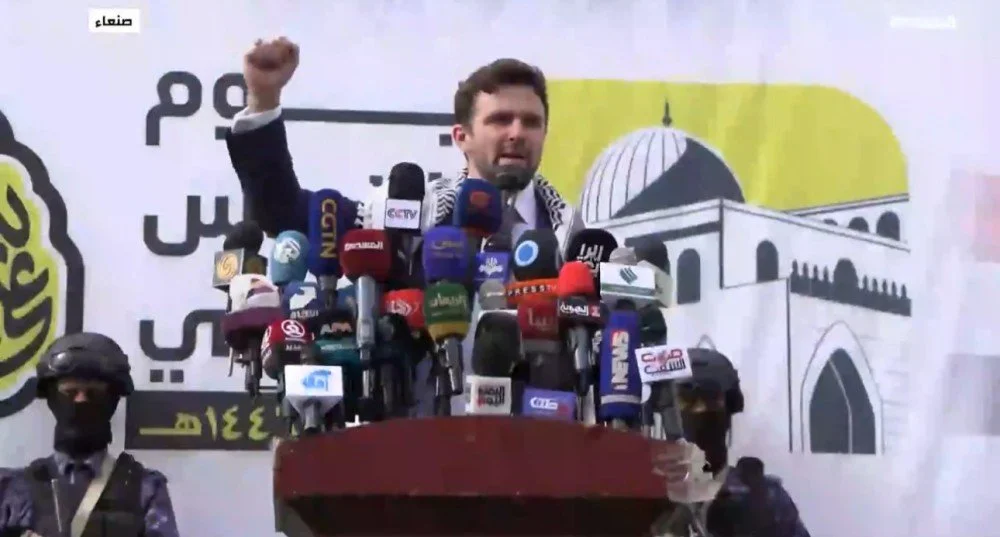American Communist Praises Terrorist Group in Sana’a: When Does Free Speech Become Extremism?
Executive Summary
In an unprecedented scene, American political activist and self-declared Marxist Jackson Hinkle delivered a public speech in Yemen’s capital, Sana’a, in full support of the Houthi movement—a U.S.-designated terrorist organization. Speaking before hundreds of thousands in Houthi-controlled territory, Hinkle praised their resistance and denounced American foreign policy. His appearance not only boosted the Houthis’ information warfare campaign but also raised critical legal and ethical concerns regarding the limits of political speech by U.S. citizens abroad.
Analysis
Jackson Hinkle’s speech at Al-Sabeen Square wasn’t merely an expression of anti-imperialist beliefs—it was a highly symbolic endorsement of a group considered a global threat by the United States. With U.S. airstrikes recently targeting Houthi leaders and tensions soaring in the Red Sea, his words provided a morale boost to the rebels and allowed Houthi media to broadcast the message that even Americans support their cause.
This moment is part of a broader pattern in Hinkle’s activity. From Russia to Lebanon to Qatar, he has consistently aligned himself with groups and regimes hostile to the West. His ideological cocktail—“Conservative Communism,” pro-Putin nationalism, and glorification of anti-Israel movements—has gained traction online, where he commands a following of millions. Hinkle previously interviewed Hamas officials in Doha, stood at the Israeli border in a Hezbollah scarf, and now stood before a crowd in Sana’a invoking “resistance” rhetoric echoed by Iran’s proxies.
Despite clear U.S. legal restrictions on material support to terrorist organizations, Hinkle appears to be exploiting a loophole: while interviewing, platforming, and praising these groups may be morally and diplomatically fraught, it has yet to cross the legal threshold. His behavior raises difficult questions for U.S. policymakers: when does political speech, even by a private citizen, become an act of subversion or foreign propaganda?
For the Houthis and their backers, Hinkle’s speech is a strategic win. It allows them to frame their struggle not just as regional or sectarian, but part of a broader global front against Western imperialism. For the U.S., however, it exposes the growing challenge of domestic radical influencers amplifying the message of America’s adversaries from within—and now, from their frontlines.


